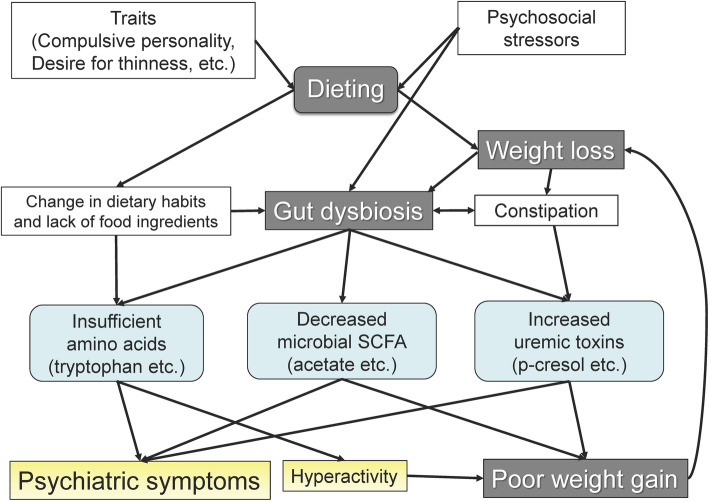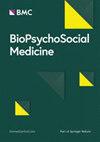肠道微生物群在神经性厌食症发病机制中的可能作用。
IF 2.3
4区 医学
Q2 PSYCHIATRY
引用次数: 5
摘要
神经性厌食症(AN)是一种饮食失调症,其特征是极度体重减轻和害怕体重增加。社会心理因素被认为在AN的发生和发展中起重要作用;然而,生物因素也可能导致饮食失调。最近的证据表明,肠道微生物群在包括an在内的神经精神疾病的发病机制中起着重要作用。在这篇文章中,我们根据最新的研究工作,包括我们小组的研究工作,描述了肠道微生物群在AN的发展和持续中可能起的作用。本文章由计算机程序翻译,如有差异,请以英文原文为准。

Possible role of the gut microbiota in the pathogenesis of anorexia nervosa.
Anorexia nervosa (AN), an eating disorder, is characterized by extreme weight loss and fear of weight gain. Psychosocial factors are thought to play important roles in the development and progression of AN; however, biological factors also presumably contribute to eating disorders. Recent evidence has shown that the gut microbiota plays an important role in pathogenesis of neuropsychiatric disorders including AN. In this article, we describe the possible role of the gut microbiota in the development and persistence of AN, based on the latest research works, including those of our group.
求助全文
通过发布文献求助,成功后即可免费获取论文全文。
去求助
来源期刊

BioPsychoSocial Medicine
Multiple-
CiteScore
3.60
自引率
0.00%
发文量
23
审稿时长
18 weeks
期刊介绍:
BioPsychoSocial Medicine is an open access, peer-reviewed online journal that encompasses all aspects of the interrelationships between the biological, psychological, social, and behavioral factors of health and illness. BioPsychoSocial Medicine is the official journal of the Japanese Society of Psychosomatic Medicine, and publishes research on psychosomatic disorders and diseases that are characterized by objective organic changes and/or functional changes that could be induced, progressed, aggravated, or exacerbated by psychological, social, and/or behavioral factors and their associated psychosomatic treatments.
 求助内容:
求助内容: 应助结果提醒方式:
应助结果提醒方式:


